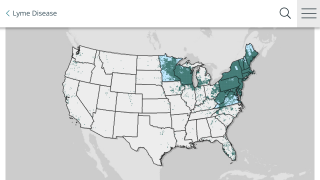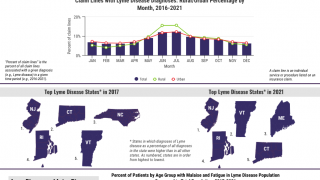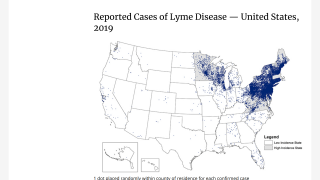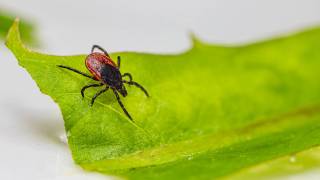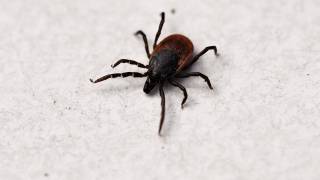Tick-Borne Disease SFTS Vaccine Candidate Found ‘Protective’

A KAIST research team reported the development of a DNA vaccine candidate for Severe Fever with Thrombocytopenia Syndrome Virus (SFTSV) which completely protects against lethal infection in ferrets.
This team confirmed on August 23, 2019, in a press release, that ferrets immunized with DNA vaccines encoding all SFTSV proteins showed 100 percent survival rate without detectable viremia and did not develop any clinical symptoms.
Severe Fever with Thrombocytopenia Syndrome (SFTS) is a newly emerging tick-borne infectious disease. The disease causes fever, severe thrombocytopenia, leukocytopenia as well as vomiting and diarrhea.
This is important news since SFTS cases have a reported mortality rate up to 20 percent. And, there is currently no vaccine available to prevent SFTS.
Furthermore, the spread of the tick vector to North America increases the likelihood of potential outbreak beyond Far East Asia.
The World Health Organization (WHO) has also put SFTSV into the priority pathogen requiring urgent attention category. Currently, no vaccine has been available to prevent SFTS.
The research team led by Professor Su-Hyung Park noted in this study that ‘DNA vaccines induce broader immunity to multiple antigens than traditional ones. Moreover, DNA vaccines stimulate both T cell and antibody immunity, which make them suitable for vaccine development.’
They constructed DNA vaccines that encode full-length Gn, Gc, N, NS, and RNA polymerase genes based on common sequences of 31 SFTSV strains isolated from patients. Their vaccine candidates induced both neutralizing antibody response and multifunctional SFTSV-specific T cell response in mice and ferrets.
To investigate the vaccine's efficacy in vivo, the research team applied a recently developed ferret model that recapitulates fatal clinical symptoms in SFTSV infection in humans. Vaccinated ferrets were completely protected from lethal SFTSV challenge without SFTSV detection in their blood, whereas all control ferrets died within 10 days' post-infection.
The KAIST team found that anti-envelope antibodies play an important role in protective immunity, suggesting that envelope glycoproteins of SFTSV may be the most effective antigens for inducing protective immunity.
Moreover, the study revealed that T cell responses specific to non-envelope proteins of SFTSV also can contribute to protection against SFTSV infection.
Professor Park concluded saying, "This is the first study demonstrating complete protection against lethal SFTSV challenge using an immunocompetent, middle-sized animal model with clinical manifestations of SFTSV infection.”
“We believe this study provides valuable insights into designing preventive vaccines for SFTSV."
No researcher conflicts of interest were disclosed.
KAIST was established in 1971 to foster elite human resources in science and technology needed by the nation.
Published by Precision Vaccinations
Our Trust Standards: Medical Advisory Committee







